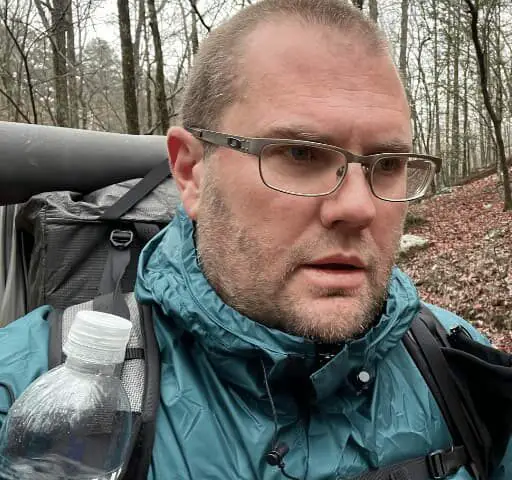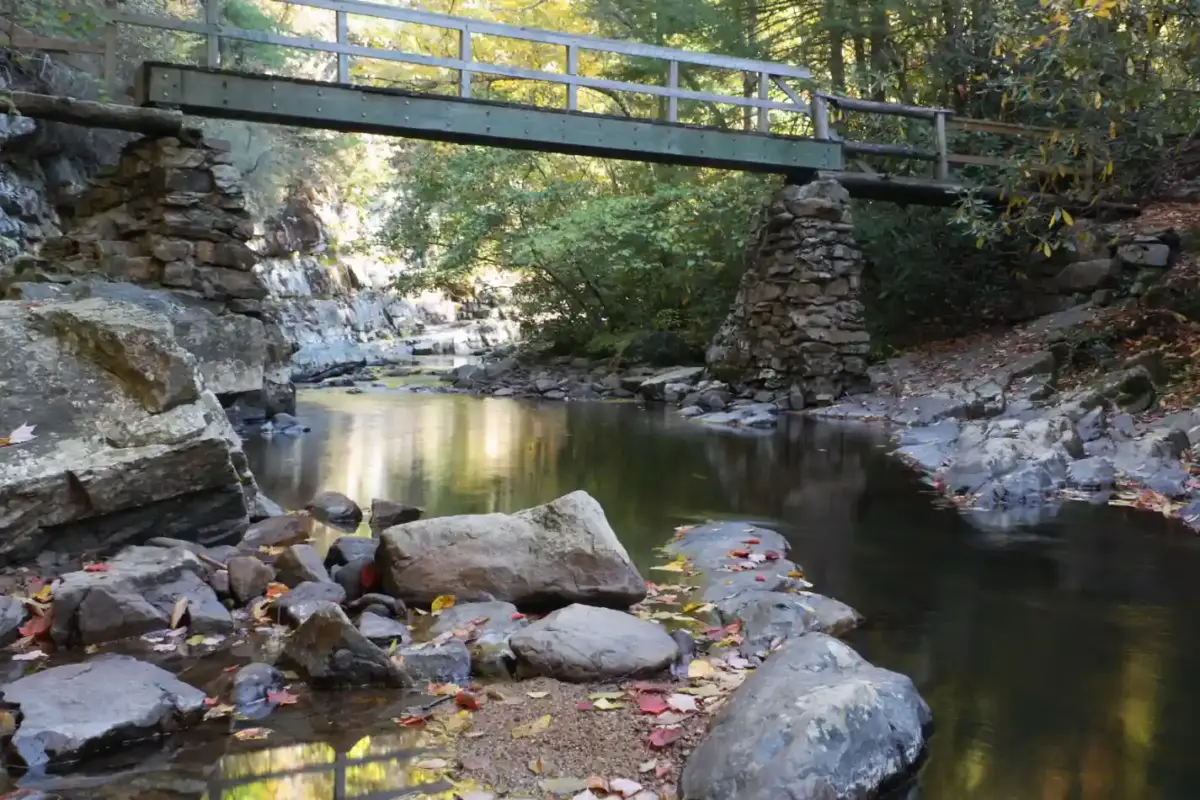The Appalachian Trail is a challenge for anyone who takes it on, but managing your hygiene can be even more difficult. With so much time spent in close contact with other hikers, you’ll need to take care of yourself to avoid developing odors that are far from pleasant. In this blog post, we will discuss the best ways to keep your scent fresh and clean – no matter how long it’s been since your last shower!
Showering occurs while in trail towns and at parks with bathrooms that feature shower options. Far more frequently, you will use water and a camp towel to generally wipe off grime while on the trail in between, with some choosing to carry wet wipes specifically to help clean themselves.
You may wonder how you stay clean over long periods, sometimes 5-7 days, without showering. Well, most find that they have no issues with their scent after a few days once adjusting to the trail life.
Understanding You WILL Smell
We live in a world full of overpowering scents, and we have all kinds of smells from each soap we use to shampoo, conditioner, and deodorant. Having all these overpowering smells does cause your olfactory system to have issues at first once they are removed.
Deodorant is one of the most common carried items for a thru-hiker at the start of their journey. Many have never read much on trail life before leaving to complete the thru-hike.
What’s funny is typically, by the first town they stop at, they throw the deodorant into a hiker box for “the next person” who wants it. They realize that nothing humans create can overpower the funk of hard days out hiking.
Learn to Embrace Your Funk
The first thing most hikers will have to come to terms with is their funk. It won’t matter how much you try to fight it. You will learn to adapt and not even notice it eventually.
It’s something that most hikers embrace the longer they are on the trail as they realize they are no longer concerned with hiding their odor from the public because who cares? You’re out in nature, living life at a different pace than society allows, with the only focus being yourself and maybe a tramily.
More interesting is that, over time, nearly all thru-hikers will begin to smell those same perfumes in the air, sometimes miles ahead of the day hiker who cruises by. It’s incredible how our nose adapts!
Say No to Deodorant
Despite popular belief, deodorant isn’t one of hiking’s essential items. Deodorant not only removes odors; it also has a pleasant scent that attracts insects and other animals, including bears, to your location. Why would you EVER want that?
After a few days without deodorant, you’ll get used to your new “natural” smell. And as long as you wash your armpits and groin area with soap and water as directed below regularly, this scent won’t bother you or your hiking buddies.
Ditch the stick and learn to clean as needed on the trail following LNT principles!
Trail Cleaning
When you are out on the trail, you will need to stick to more rudimentary cleaning to maintain overall cleanliness while out on the trail. While it may be difficult, it will help you do better for longer on your hike to maintain some self-cleaning regimen.
Camp Towel
Using a simple camp towel, like the one you should have to wipe down your tent, will help you do a generalized wipe down after a hard day of hiking, getting those hard sweat crystals off you and helping cut down chafing.
Baby Wipes
For those who want to pack in wet wipes, they can aid in helping wipe down far more effectively than a camp towel. But the issue with wet wipes is they are a pack in and back out. This means carrying the weight until you can find a trashcan.
Non-Trail Cleaning
This is where you can do some deep-level cleaning and get everything out of all the cracks and crevices, and this is one of the big things a hiker on a NERO or ZERO should get done ASAP.
Hotel
Hotels are the most expensive place you can stay on the trail, but you can frequently stack a couple of your tramily members in a room to help cut the overall expense.
Hotels offer the ability to have a shower that’s not going to ever run out of warm or hot water, along with not being shared with all the other people staying other than those you invite.
Hostel
Typically, hostels will be one of the busiest spots as they offer inexpensive places to stay the night that allow access to many amenities like showers, washers and dryers, and a place to find a hot meal.
Frequently, these resources are all shared between hikers, though, which can lead to more limited time to use them.
Park Bathrooms
These will frequently be in the national parks camping areas where you may have access to full-function bathrooms, with many though you may have access to showers and even a washer and dryer.
These can cost you quarters, so I would pay attention to what other thru-hikers have said before on apps like Guthooks (Now FarOut) to see if you need to bring some cash to change for quarters.
Why Cleanliness is Still Vital to Health
Now, many may wonder, if you get used to your stink, why would you want to spend time in between towns maintaining your cleanliness? Much of this is to help cut down on issues that build up over time, like salt crystals from the hardcore sweating that happens.
The two biggest things cleaning does are to help keep your private areas clean and to help cut down on overall chafing from toes to your head, all of which can get irritated with constant rubbing of clothing on sweaty skin.
Private Area(s)
You’re out on the trail and walking a lot. Chafing can develop due to all this rubbing, sweating, and movement. It’s essential to look after your unmentionables while on the go.
For thru-hikers, having at least two pairs of underwear is a safe way to allow you to switch between pairs and wash and dry the other pair for use again the next day.
If you find yourself fighting through long stretches without easy access to washing, you could also turn your underwear inside out to push and stretch yourself out to four days without issue.
As to your feet and caring for them over a long-distance thru-hike, getting a foot injury is essentially an end to a thru-hike. So working hard to keep them clean should always be a key to a hikers end of day tasks, stopping them from becoming itchy, gross, and similar.
The best way to do this is to change out socks frequently, wash your feet between the toes, and wash socks and hang them to dry in the most sunlight possible to kill bacteria using the UV rays.
Use a Little Soap and Follow LNT Principles
It would be best not to use soap (even biodegradable soap) in or near any water bodies. Biodegradable soaps can hurt the nutrient balance of an aquatic ecosystem, which is not something to take lightly in high-use areas (such as the AT corridor).
Using soaps in the backcountry is a bit more complicated than you might think. Because soap may pollute water, it should be used only when essential and never on the banks of any bodies of water (200+ feet as per Leave No Trace).
Soaps should be used sparingly (the least amount required to clean whatever you try to clean).
In specific locations, you may be fined and ticketed if a ranger catches you using soap in or near a water body.
Final Thoughts on Showering and Cleaning on Trail
While on the Appalachian Trail, it can be challenging to keep yourself clean. The methods for doing so are not always straightforward, and there is much conflicting information about how best to do this.
This blog post has offered tips that should help you with your journey- whether for day hikes or long treks through the wilderness. From using leaves instead of toilet paper to washing your privates in water bottles, these suggestions will come in handy if you want to maintain good hygiene while hiking.
These tactics may seem strange initially, but they can make a difference when it comes down to staying healthy on trail!


Leave a Comment